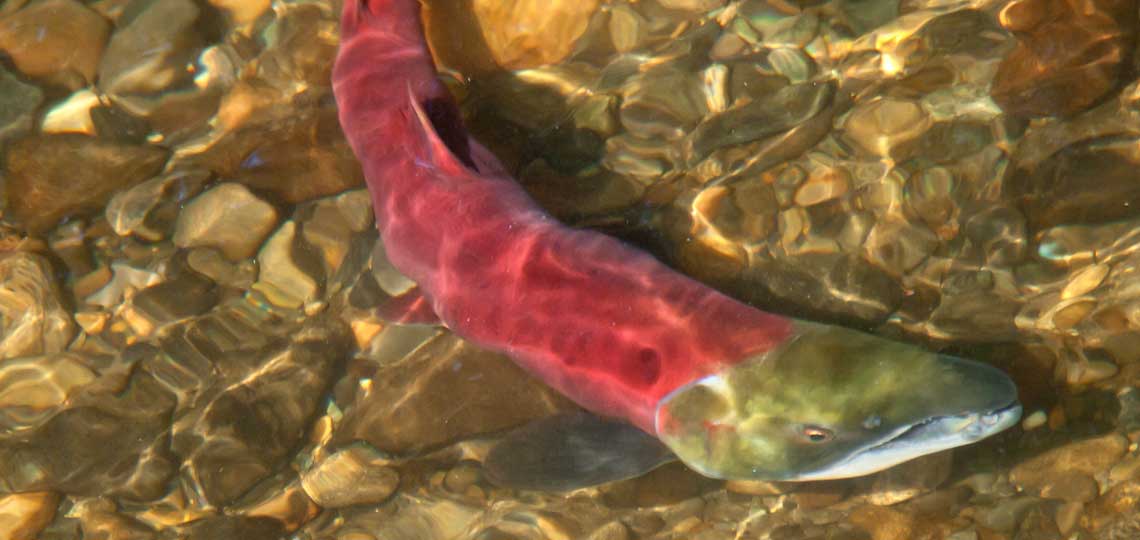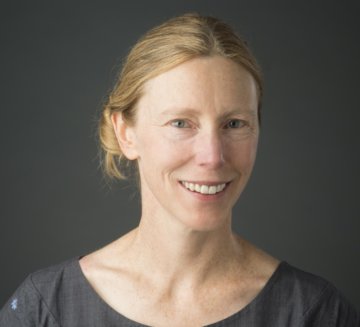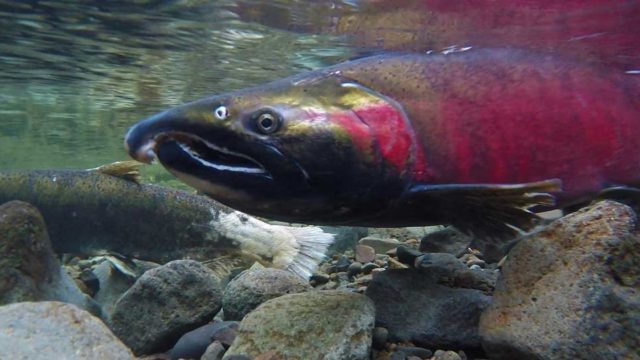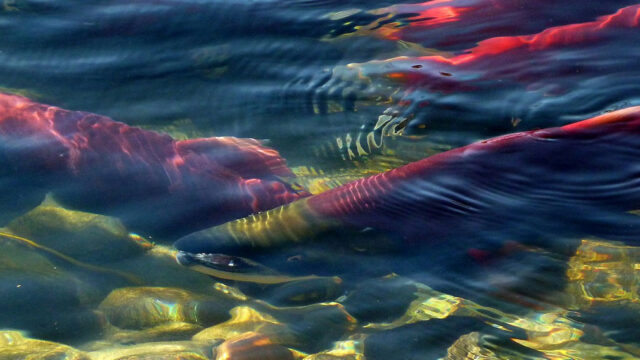How high-profile developments are keeping fish farms on the public radar – and reinforcing the importance of protecting wild salmon.
Wild salmon scored a high-profile win last week, when Washington State senators voted to ban Atlantic salmon net-pen farming in state waters.
Under the legislation, all farms will be phased out by 2025.
First Nations and advocates in British Columbia welcomed the news and vowed to continue their own push against open-net pen salmon farming in provincial waters.
The ban comes a little more than six months after net pens on a Washington State farm gave way, allowing hundreds of thousands of Atlantic salmon to escape into the Pacific and opening the floodgates for renewed opposition to the aquaculture industry.
Meanwhile, the Ecojustice team continues to work with independent biologist Alexandra Morton, who we are representing as she takes her fight to protect wild salmon from piscine reovirus (PRV) to the Federal Court.
PRV is highly contagious and widespread among farmed salmon, and scientists have found evidence of a “causal relationship” between PRV and the deadly disease known as heart and skeletal muscle inflammation (HSMI).
As welcomes wear thin for fish farms, every major update reinforces the importance of protecting our wild salmon.
Here is a closer look at some major developments from the last six months that could impact the future of aquaculture in British Columbia’s coastal waters:
First Nations stage occupations, serve eviction notice
Resistance to fish farms is not new.
For more than 30 years, the Musgamagw Dzawada’enuxw Nation has “stood in opposition to fish farms in their territory.” In 2017, members of the Musgamagw Dzawada’enuxw Nation and ‘Namgis First Nation spent months occupying an aquaculture site operated by Marine Harvest on Midsummer Island.
The occupation came to an end last December, when a B.C. Supreme Court judge granted an injunction to the site. But at the time, members vowed to continue fighting to get fish farms out of their territory.
Less than a month later, members of at least six First Nations delivered an eviction notice to another farm run by Marine Harvest.
“This is our right and this is our territory and we need to protect it,” Kwakiutl First Nation elder James Wadhams told CTV News at the time.
Viral blood water video spurs strong response
Graphic footage of a cloud of bloody effluent streaming from a farmed-salmon processing plant in B.C. triggered a strong response when it came to light in late November, 2017.
Photographer Tavish Campbell captured the scene while diving off the coast of Vancouver Island, in a location where he said wild salmon can often be found.
“It is insanity dumping this effluent right into the salmon migration corridor,” he told CTV News.
And it gets worse: Tests from the Atlantic Veterinary College showed the presence of PRV in the blood water.
News outlets from around the world – including Buzzfeed and the BBC – picked up the story. Facing intense scrutiny at home and abroad, both the provincial and federal governments launched reviews of the situation.
The beginning of the end for fish farms?
Despite these developments, any explicit mention of fish farms was noticeably absent from a new bill to amend the Fisheries Act Minister of Fisheries and Oceans Dominic LeBlanc tabled last month.
And the fact remains that Minister LeBlanc is actively fighting our ongoing lawsuit over his policy and practice of issuing transfer licenses without considering whether the fish are infected with PRV or HSMI.
Next week we will cross-examine the DFO Regional Director on evidence filed in support of the Minister’s policy and practice.
Since we first teamed up with Alex in 2015, straight through to our present case, countless supporters like you have spoken up and let us know that you are concerned about the future of wild salmon.
Through donating to support our work, sending letters urging Minister LeBlanc to #SaveOurSalmon, and being vocal on social media, you have helped propel the fish farm conversation, and encourage Ottawa to take action.
It may be too soon to say if this is the beginning of the end for fish farms. But like hundreds of thousands of salmon breaking free of their net pens and escaping into the ocean, growing opposition to fish farms shows no sign of slowing.
Sockeye Colours by Ingrid Taylar, via Flickr. Image obtained under Creative Commons.





